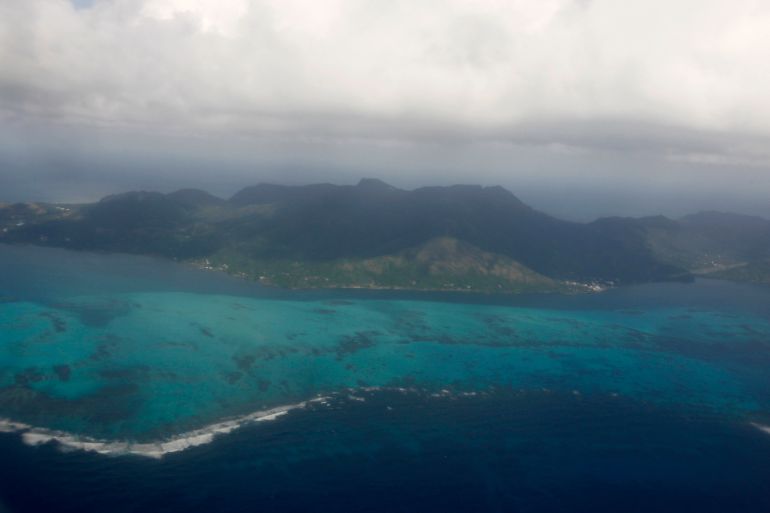ICJ: Colombia must stop activity in Nicaraguan EEZ waters
Ruling by the UN’s top court caps decades of dispute between Nicaragua and Colombia over maritime borders.

The International Court of Justice (ICJ) has ruled that Colombia must “immediately cease” patrolling and trying to control fishing activities and maritime research in parts of the western Caribbean off the coast of Nicaragua.
The judges at the United Nations’ top court in The Hague said on Thursday the waters are within Nicaragua’s exclusive economic zone (EEZ), in a ruling that caps decades of dispute between Nicaragua and Colombia over maritime borders.
Keep reading
list of 3 itemsNicaragua shuts down 25 groups critical of President Ortega
Magnitude 6.7 earthquake hits Nicaragua coast
The ruling comes after the ICJ, in 2012, said Nicaragua’s maritime borders included a swath of disputed Caribbean Sea territory extending 200 nautical miles (370km or 230 miles) from its coastline.
Following that ruling, Colombia said it would no longer recognise the court’s jurisdiction on border disputes. A year later, Nicaragua filed a new case accusing Colombia of doing just that.
Nicaragua also alleged Colombia had threatened to use force to back up its claims in the oil and fish-rich region.
At the time, Nicaragua’s lawyers also asked the ICJ to rule that Colombia should pay compensation including for “the threat or use of force by the Colombian navy against Nicaraguan fishing boats”.
Colombia denied the accusations, saying its presence in the region was “due to other imperatives”, including the fight against drug trafficking and international maritime rescue.
For its part, Colombia accused Nicaragua of interfering with Indigenous fishing rights, with the loss of fishing grounds that resulted from the ICJ’s 2012 ruling particularly affecting the Raizal people, an English and Creole-speaking community who are mainly descendants of slaves abducted from Africa, Colombia’s lawyers said.
Nicaragua first took Colombia to the ICJ over the century-long dispute in maritime borders in 2001.
Countries are obliged to implement the ICJ’s judgements, which are final and cannot be appealed.
In rare situations where a country refuses, the matter can be referred to the UN Security Council by the complaining country for further action.